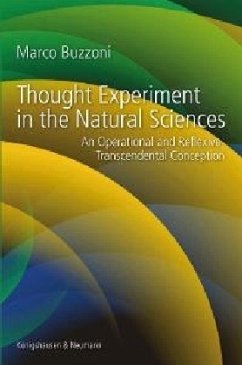How can thought experiments, which, unlike real ones, do not rely on new material drawn from experience, lead to unexpected conclusions sometimes capable of casting doubts on well-confirmed empirical theories? How can inferences drawn in the sphere of thought alone tell us something about empirical reality, just as real experiments do? >From a methodological point of view, an answer to these questions presupposes that the relation between thought experiments and real experiments be explained; and this is possible only if both terms are explicitly thematised. In this respect, there is a serious gap in literature, which has hardly tackled the question of nature, function and validity of real experiments. This work tries to overcome this limit of previous conceptions of thought experiment from a perspective at once operational and reflexive-transcendental. From an operational point of view all thought experiments may conceivably become real experiments and all experiments may be conceived as realised thought experiments. However, the operational perspective defended in this work allows for a reflexive-transcendental point of view that sharply distinguishes the two concepts of experiment and thought experiment while maintaining the connection between them.
Bitte wählen Sie Ihr Anliegen aus.
Rechnungen
Retourenschein anfordern
Bestellstatus
Storno

